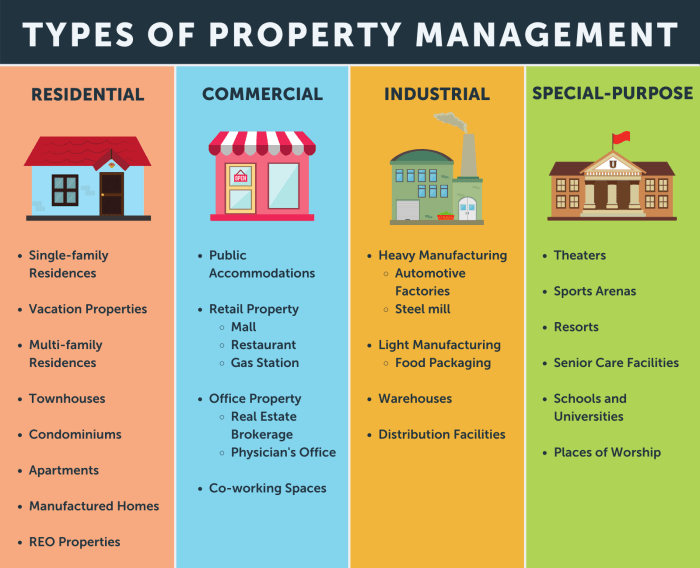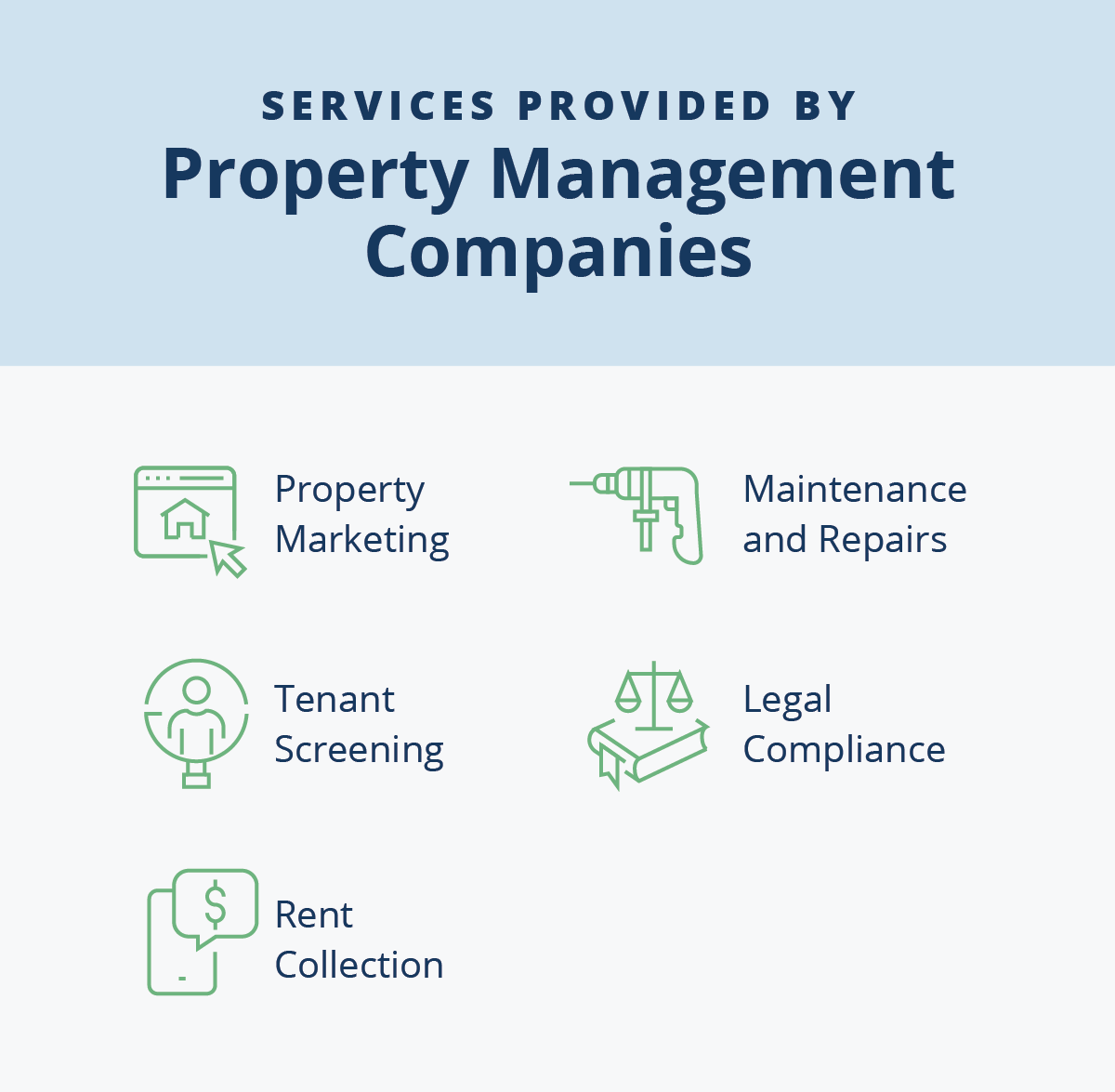Embark on a journey into the world of residential property management, where landlords and tenants intertwine in a dance of responsibilities and rights. This guide delves into the essential aspects of managing residential properties, shedding light on the crucial role of property managers in maintaining harmony and order.
Introduction to Residential Property Management
Residential property management involves overseeing and maintaining properties such as houses, apartments, and condominiums on behalf of the property owner. It includes tasks like finding tenants, collecting rent, property maintenance, and handling tenant concerns.
Importance of Effective Property Management
Effective property management is crucial for both landlords and tenants. For landlords, it ensures that their properties are well-maintained, rent is collected on time, and vacancies are minimized. For tenants, it provides a reliable point of contact for any issues with the property and ensures a comfortable living environment.
Role of a Residential Property Manager
A residential property manager acts as the intermediary between the landlord and the tenants. They are responsible for finding suitable tenants, collecting rent, handling maintenance requests, ensuring legal compliance, and resolving any disputes that may arise between the parties. Their goal is to maintain a positive relationship between the landlord and the tenants while maximizing the return on investment for the property owner.
Responsibilities of Residential Property Managers

Residential property managers play a crucial role in overseeing and managing properties on behalf of the owners. They handle various tasks to ensure the smooth operation of residential properties, maintain tenant satisfaction, and maximize property value.
Primary Duties of a Residential Property Manager
- Setting and collecting rent: Property managers are responsible for setting the right rent level to attract tenants while generating income for the property owner. They also ensure timely rent collection.
- Maintenance and repairs: Property managers oversee maintenance tasks and repairs to keep the property in good condition. They coordinate with contractors and vendors to address any issues promptly.
- Tenant relations: Property managers interact with tenants, address their concerns, and ensure a positive living experience. They handle complaints, enforce lease agreements, and facilitate lease renewals or terminations.
- Marketing and leasing: Property managers market vacant units, conduct property showings, screen potential tenants, and handle the leasing process. They ensure that all legal requirements are met during the leasing process.
How Property Managers Handle Maintenance and Repairs
Property managers are responsible for ensuring that the property is well-maintained and any necessary repairs are addressed promptly. They typically follow a process that involves:
- Regular inspections to identify maintenance needs
- Coordination with vendors and contractors for repairs
- Responding to maintenance requests from tenants in a timely manner
- Implementing preventive maintenance measures to avoid costly repairs
Process of Tenant Screening and Leasing
Property managers follow a thorough screening process to find suitable tenants for the property. This process includes:
- Advertising the property and attracting potential tenants
- Conducting background and credit checks on applicants
- Verifying income and employment information
- Reviewing rental history and references
- Signing lease agreements and ensuring compliance with all legal requirements
Legal Aspects in Residential Property Management
When it comes to managing residential properties, property managers must adhere to a set of key legal requirements to ensure compliance with the law and protect the interests of both landlords and tenants.
Eviction Process and Landlord-Tenant Laws
Understanding the eviction process and landlord-tenant laws is crucial for property managers to navigate any potential conflicts or issues that may arise during a tenancy.
- Landlords must follow specific procedures and timelines when evicting a tenant, as Artikeld in state laws.
- Tenant rights must be respected throughout the eviction process, including providing proper notice and following legal eviction proceedings.
- It is essential for property managers to stay informed about any changes in landlord-tenant laws to ensure compliance and avoid legal consequences.
Importance of Proper Documentation
Proper documentation is key in property management to protect both landlords and tenants and provide a clear record of all interactions and agreements.
- Documenting all communication with tenants, including lease agreements, repair requests, and notices, can help prevent misunderstandings and disputes.
- Keeping detailed records of property inspections, maintenance work, and financial transactions is essential for transparency and accountability.
- In the event of legal proceedings, having thorough documentation can support the case of the property manager or landlord and ensure a fair resolution.
Financial Management in Residential Property Management
Effective financial management is crucial for the success of residential property management. Property managers have various financial responsibilities to ensure the profitability and smooth operation of properties under their care.
Financial Responsibilities of a Property Manager
- Collecting rent payments from tenants in a timely manner.
- Handling security deposits according to legal regulations and returning them promptly at the end of the lease term.
- Tracking and managing expenses related to property maintenance, repairs, and other operational costs.
- Preparing financial reports for property owners to provide transparency and accountability.
Rent Collection Procedures and Handling of Security Deposits
Property managers must establish clear procedures for rent collection to ensure consistent cash flow. They should also handle security deposits carefully, following state laws and regulations to protect both tenants and property owners.
Creating and Managing Budgets for Properties
Property managers play a crucial role in creating and managing budgets for residential properties. By analyzing income and expenses, they can develop realistic budgets that ensure the financial health of the property. This involves forecasting future expenses, setting aside funds for maintenance and repairs, and optimizing revenue streams.
Tenant Relations and Communication

Effective communication with tenants is crucial in residential property management to ensure a harmonious relationship and address any issues promptly. Property managers should strive to maintain open lines of communication through various channels such as emails, phone calls, or in-person meetings.
By being responsive and approachable, property managers can build trust with tenants and create a positive living experience.
Strategies for Effective Communication with Tenants
- Regularly update tenants on any maintenance or repair work being carried out in the property.
- Provide clear guidelines on rent payment methods, lease agreements, and property rules.
- Address tenant queries or concerns promptly and professionally.
- Organize periodic meetings or surveys to gather feedback and suggestions from tenants.
Handling Tenant Complaints and Conflicts
- Listen actively to tenant complaints and show empathy towards their concerns.
- Take swift action to resolve issues and keep tenants informed of the progress.
- Mediate disputes between tenants or between tenants and the management to find an amicable solution.
- Document all complaints and resolutions for future reference and transparency.
Importance of Maintaining Positive Tenant Relations
- Positive tenant relations lead to tenant satisfaction and retention, reducing turnover rates and vacancies.
- Happy tenants are more likely to comply with property rules and regulations, leading to a harmonious living environment.
- Building a good reputation among tenants can attract new tenants through word-of-mouth recommendations.
- Resolving issues promptly and maintaining open communication can help prevent escalated conflicts and legal disputes.
Final Summary

As we conclude this exploration of residential property management, it becomes evident that effective management is the cornerstone of successful landlord-tenant relationships. By adhering to legal requirements, maintaining financial stability, and fostering positive tenant relations, property managers play a pivotal role in ensuring a smooth and prosperous rental experience for all parties involved.
Questions Often Asked
What are the common responsibilities of a residential property manager?
Residential property managers are tasked with duties such as rent collection, property maintenance, tenant screening, lease enforcement, and budget management.
What legal aspects should property managers be aware of?
Property managers must adhere to laws regarding eviction procedures, landlord-tenant relationships, fair housing practices, and proper documentation of agreements and notices.
How do property managers handle tenant complaints?
Property managers address tenant complaints by listening attentively, assessing the situation objectively, and working towards a resolution that satisfies both parties.













